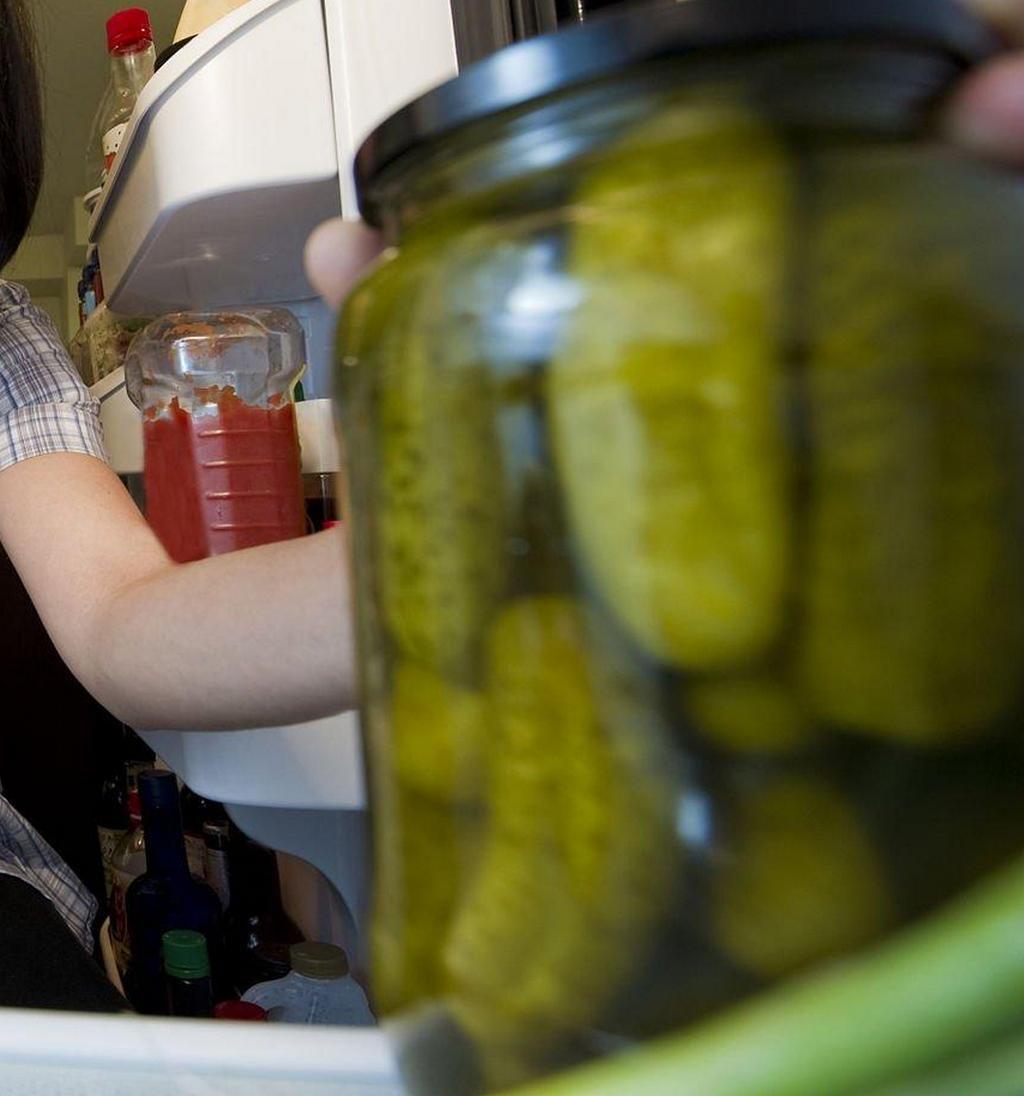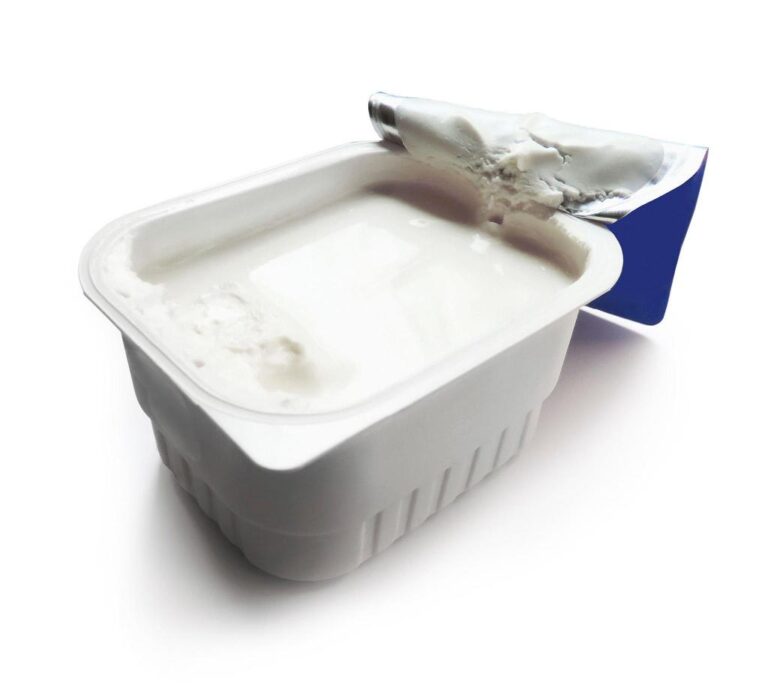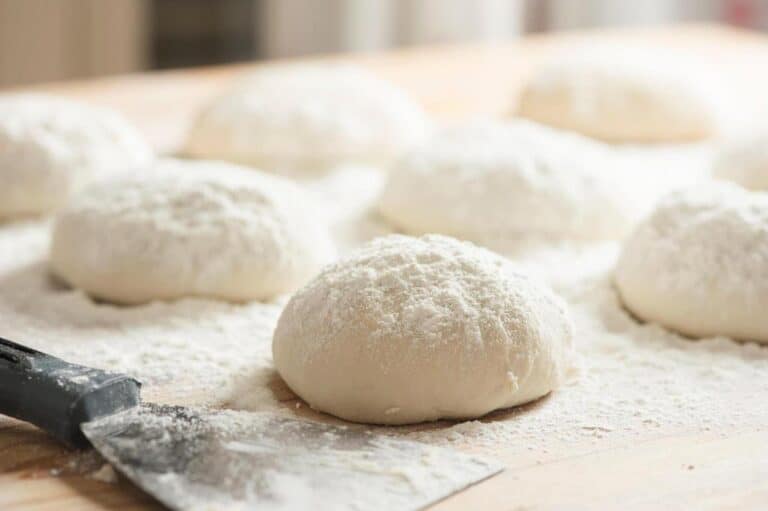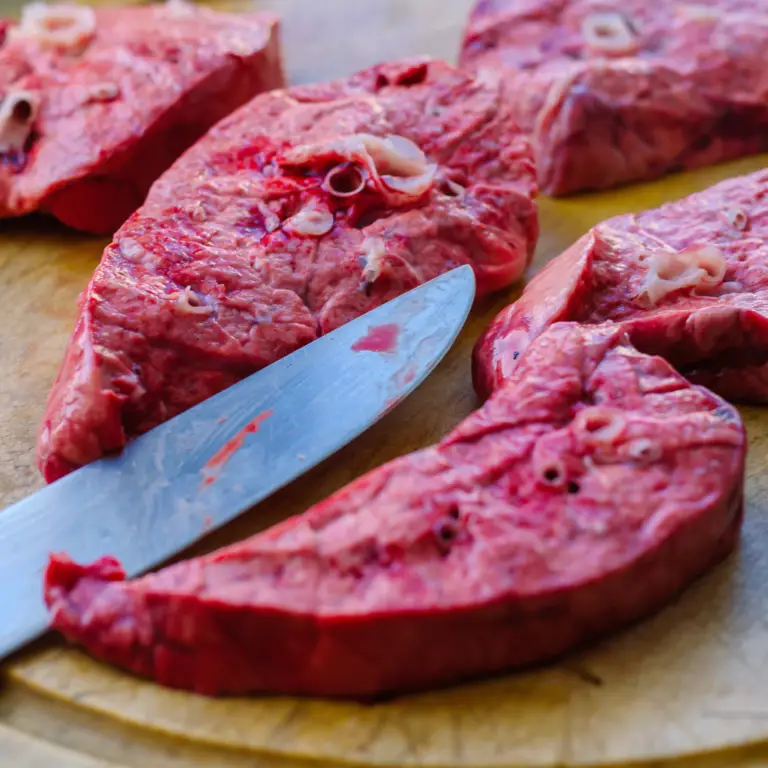Do Pickles Need to Be Refrigerated after Opening? How to Store Them?

Pickles are a popular and delicious snack made of preserved cucumbers. Once they are opened, the question of how to store them arises. Some people believe that pickles must be refrigerated after opening to maintain their freshness, while others argue that they can be stored at room temperature.
So, what’s the truth? Do pickles need to be refrigerated after opening or not? Pickles should always be refrigerated after opening to prevent bacteria growth and spoilage.
In this blog post, we’ll clear up the confusion and explain why refrigeration is necessary for some types of pickles and not for others. In addition to that, we’ll provide you with all the information you need to know about storing pickles. Get ready to take your pickle game to the next level!
What Are Pickles?
Pickles are primarily made of cucumbers that have been preserved in vinegar or brine. They are a popular snack and topping, and they are often served with sandwiches, burgers, and salads.
Pickles have been around for thousands of years and were originally made as a way to preserve food before the advent of refrigeration.
The process of making pickles involves slicing cucumbers and soaking them in a mixture of vinegar, salt, sugar, and spices. This mixture keeps the pickles fresh by stopping bacteria and fungi from growing. It also gives the pickles a unique flavor and crunch.
Pickles can taste different depending on what kind of vinegar is used and what spices are added, such as dill, garlic, and mustard seeds.
Pickles are known for their high vitamin content, specifically vitamin K and vitamin C. They are also low in calories, which makes them a popular snack for people who are trying to eat healthy.
In addition to being a healthy snack, pickles have been used for their potential health benefits. Some studies have shown that the vinegar in pickles can help regulate blood sugar levels, reduce inflammation, and improve digestion.
Four Different Types of Pickling Methods
Pickling is a food preservation method that has been used for centuries to extend the shelf life of food. Food is pickled by soaking it in a solution of vinegar, salt, or a mix of the two. This prevents dangerous bacteria from growing on the food.
There are several different pickling methods, each with its own unique flavor, texture, and benefits. In this article, we’ll look at four of the most common ways to pickle: quick pickling, salt-brined, vinegar-brined, and fermented.
1. Quick-pickling
Quick-pickling, also known as refrigerator pickling, is a fast and easy method of pickling that can be done in a matter of hours. This method involves simmering vinegar, salt, sugar, and spices to create a brine, which is then poured over sliced vegetables or fruit. Quick-pickles have a crisp and tangy flavor and can be stored in the refrigerator for several weeks.
2. Salt-brined
Salt-brined pickling involves soaking food in a solution of salt and water. This method is used to keep vegetables, fruits, and meats fresh. The pickles that come out of it have a mild taste and a soft texture. Salt-brined pickles are typically stored in the refrigerator and can last for several months.
3. Vinegar-brined
Vinegar-brined pickling is similar to quick-pickling, but instead of simmering the vinegar, salt, and spices, they are simply combined in a jar with the food. This method produces pickles with a tangy flavor and a crisp texture, and the pickles can be stored in the refrigerator for several weeks.
4. Fermented
Fermented pickling is a traditional method of pickling that involves using the natural bacteria found on the food to produce lactic acid, which acts as a preservative. This method can take weeks or even months, but the pickles that come out of it have a unique flavor that is made up of many different tastes.
Fermented pickles are typically stored in a cool, dark place, such as a pantry or cellar, and can last for several months.
Do Pickles Need to Be Refrigerated after Opening?
Once a jar of pickles has been opened, the question arises as to whether they need to be refrigerated. We will explore the answer to this question and discuss the reasons behind it.
Most commercially made pickles are kept in the fridge to keep them fresh and make them last longer. This is because pickles are often made with vinegar and salt, which act as preservatives, but the vinegar and salt levels in the jar can decrease over time, making the pickles more susceptible to spoilage.
If the pickles are not stored in the refrigerator, the temperature and humidity levels can cause the pickles to spoil faster, leading to the growth of harmful bacteria.
However, pickles that are made using a fermentation process, such as dill pickles, can be stored at room temperature after opening. This is because the lactic acid made during fermentation acts as a natural preservative and stops harmful bacteria from growing. Fermented pickles have a unique taste, and people who like sour foods tend to like them best.
What Happens If You Don’t Refrigerate Pickles after Opening?
While pickles are usually stored in the refrigerator, some people may wonder what will happen if they are not refrigerated after opening. We will discuss the consequences of not refrigerating pickles after opening.
Pickles are typically made by briefly cooking them in a brine solution of vinegar, salt, and spices. This solution keeps the pickles from going bad and helps them last longer. However, once the jar is opened, the pickles are exposed to air and the environment, and the vinegar and salt levels in the jar can decrease over time.
If the pickles are not stored in the refrigerator, the temperature and humidity levels can cause the pickles to spoil faster, leading to the growth of harmful bacteria.
The salt and vinegar in the brine should keep the pickles safe for a while, but they will likely go bad at room temperature before you finish eating the whole jar. If you eat spoiled pickles, you could get food poisoning, which can cause nausea, vomiting, and diarrhea, among other things. After opening pickles, store them in the fridge to prevent them from spoiling.
How to Store Pickles after Opening
1. Preparing the Pickle Jar for Storage
After opening the jar of pickles, it’s important to make sure it’s ready to be stored so that it lasts as long as possible. Before storing the pickles, make sure the jar is clean and free of any debris or residue.
If the jar has a lid, ensure it is tightly sealed. If the jar does not have a lid, consider transferring the pickles to an airtight container.
2. Storing Pickles in the Refrigerator
Refrigerating pickles after opening is a commonly recommended method for storing them. When storing pickles in the refrigerator, make sure they are placed in a cool and dry location, away from any heat sources or other food items that may affect their flavor or quality.
It’s also critical to store the pickles in an airtight container. This will keep bacteria and fungi from growing.
3. Tips for Prolonging the Shelf Life of Pickles
Store pickles in the refrigerator at a consistent, cool temperature. Keep the pickles in an airtight container to reduce their exposure to air. Avoid storing the pickles near heat sources or other food items that may affect their quality.
Do not leave the pickles at room temperature for extended periods of time. Use fresh, high-quality ingredients to make the pickles, as the quality of the ingredients can affect their shelf life.
4. Alternative Storage Methods
- Some people prefer to store pickles in a cool pantry or cupboard, as long as they are in an airtight container.
- Pickles can also be stored in the freezer for an extended shelf life, although the texture may change.
- It is important to note that pickles stored outside of the refrigerator may spoil more quickly and may not be safe to consume.
- It is recommended to follow proper food safety guidelines when storing pickles, and to discard any pickles that appear to be spoiled or have an off flavor or odor.
Shelf Life Of Pickles – Refrigerated Vs. Unrefrigerated
Some people may wonder about the shelf life of pickles, both refrigerated and unrefrigerated. We will talk about how long pickles last and what the difference is between storing them in the fridge and not in the fridge.
Commercially produced pickles that are stored in the refrigerator have a shelf life of around 12 to 18 months. This is because the vinegar and salt in the brine act as preservatives and help to extend the shelf life of the pickles. Also, the refrigeration helps slow down the process of food going bad and stops harmful bacteria from growing.
On the other hand, pickles that are stored at room temperature have a shorter shelf life, usually around 2 to 3 months. This is because the temperature and humidity levels can cause the pickles to spoil faster, leading to the growth of harmful bacteria. If you eat spoiled pickles, you could get food poisoning, which can cause nausea, vomiting, and diarrhea, among other things.
Pickles that are made using a fermentation process, such as dill pickles, can be stored at room temperature after opening. This is because the lactic acid made during fermentation acts as a natural preservative and stops harmful bacteria from growing.
But it is still best to put fermented pickles in the fridge after they have been opened. This will help extend their shelf life and keep them fresh.
Is It Safe to Eat Pickles That Have Been Left Out?
Sometimes pickles get left out of the fridge for a while by accident. In such cases, it is important to consider whether it is safe to eat the pickles that have been left out.
The safety of consuming pickles that have been left out depends on several factors, such as the temperature, length of time, and type of pickle. Pickles that are fermented, such as dill pickles, are made with vinegar and salt, which act as preservatives.
This means that they are less likely to spoil or harbor harmful bacteria when left out of the refrigerator. On the other hand, sweet pickles are made with sugar and are more susceptible to spoilage when left unrefrigerated.
In general, it is not safe to consume pickles that have been left out at room temperature for more than two hours. This is because the temperature range between 40°F and 140°F is known as the “danger zone” for food safety, and it is within this range that bacteria can grow rapidly. Because of this, it is important to keep pickles in the fridge to stop bad bacteria from growing.
How to Know Your Pickle Has Gone Bad
Pickles can go bad and become unsafe to eat over time. Understanding the signs of spoilage is important in order to prevent food poisoning and waste. Here are some ways to tell if your pickles have gone bad.
- Appearance: A good way to tell if your pickles have gone bad is to inspect their appearance. If the pickles have become mushy or slimy, or if there is an unusual growth of mold, it is likely that they have gone bad. Additionally, if the liquid in the jar has changed color or has become cloudy, it is also a sign of spoilage.
- Odor: Another way to tell if your pickles have gone bad is to smell them. If they have an off odor or smell sour, it is best to discard them. This is because the smell is a sign of bacterial growth, which can cause food poisoning if consumed.
- Taste: If you are unsure whether your pickles have gone bad, the best way to know is by tasting them. If they taste sour, rancid, or have an off flavor, it is best to discard them.
- Texture: If the texture of the pickles has changed and they have become soft or rubbery, it is likely that they have gone bad. This is because the cucumbers have started to ferment, which can cause the texture to change and turned into bad cucumber.
Conclusion
In the end, whether or not pickles need to be put in the fridge after being opened is a matter of personal preference and depends on things like the type of pickles and how they were stored. Refrigerating pickles is often suggested as a way to keep them fresh longer and stop bad bacteria from growing on them.
However, pickles can also be stored in a cool pantry or cupboard, or even in the freezer, as long as they are kept in an airtight container.
When storing pickles, it’s important to follow food safety rules and check them often for signs of spoilage, like changes in color, smell, taste, or texture. If you have any doubts about the quality of your pickles, it is best to discard them to prevent food poisoning. By following these guidelines and taking proper precautions, you can enjoy your pickles for a long time to come.






